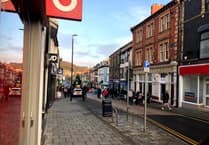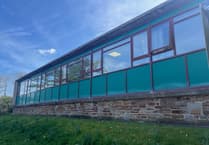More must be done to regenerate Wales’ town centres due to the impact of the pandemic, out-of-town developments and changing shopping habits, the Senedd has heard.
Welsh Conservative MS Mark Isherwood led a debate in the Senedd on a public accounts committee report following an inquiry on town centre regeneration in Wales.
The committee chair said much good work is being done to improve town centres but the pace of regeneration must be accelerated.
Mr Isherwood warned Wales’ high streets have been changed immeasurably by the pandemic and the increased prevalence of online shopping.
Calling for a simple approach to taxation, Mr Isherwood, who represents North Wales, argued the current business rates system disincentivises investment in towns.
He recommended a more interventionist, pragmatic approach to planning – favouring town centres over out-of-town developments – with a focus on repurposing empty properties.
Luke Fletcher, a Plaid Cymru MS who represents South Wales West, suggested empty office space could be used to address an acute shortage of one- and two-bedroom flats.
He said: “By bringing people into the town centre to live, you're creating that in-built footfall, aren't you, because those people are going to want services.
“They're going to want to go for a coffee, they're going to want to go for food, they're going to want to go for a pint. So, you're creating that in-built footfall.”
Replying to the debate on 13 March on behalf of the Welsh Government, Julie James warned that town centres face unprecedented challenges.
Wales’ climate change minister said: “The impact of out-of-town developments, changing retail habits and the Covid pandemic have all had consequences for our high streets.
“There are too many empty shops, too few homes and too little green space.”
Ms James told MSs the Welsh Government, which accepted the committee’s eight recommendations, has strengthened planning policies to put town centres first.
She said: “We want to see town centres considered first for the location of significant new commercial, retail, education, health, leisure and public service facilities.
“This diverse range of services will, indeed, drive footfall into our town centres.”





Comments
This article has no comments yet. Be the first to leave a comment.